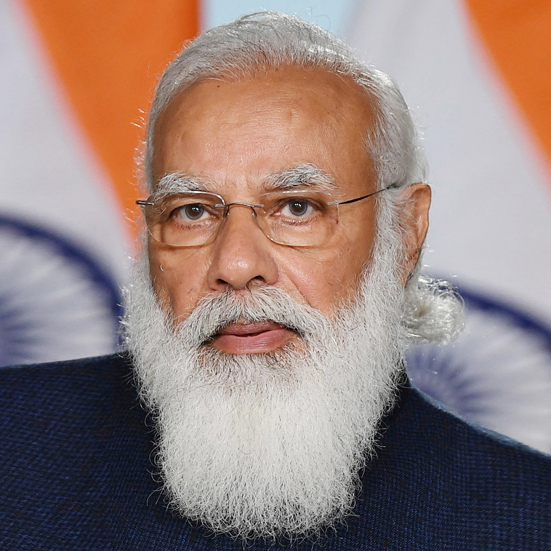While speaking at a webinar on ‘Energy for Sustainable Growth’, P M Narendra Modi stressed India’s aim to achieve 50% of its installed energy capacity through non-fossil fuels by 2030 in a bid to promote sustainability and reduce the country’s dependence on imported oil. His remarks came at a time when international crude oil prices soared to a 10-year high because of the Russia-Ukraine war and the reluctance of producers to raise output.
Modi has reiterated his commitment made at Glasgow to reach ‘net zero’ by 2070 and mentioned his vision of ‘LIFE’ pertaining to lifestyle for environment.
Addressing the ninth post-budget webinar for expeditious implementation of various proposals announced in this year’s Union budget, the Prime Minister said India’s target is to achieve 500 Gigawatt non-fossil energy capacity and 50% of installed energy capacity through non-fossil energy by 2030. “Sustainable growth is possible only through sustainable energy sources,” he said.
Finance minister Nirmala Sitharaman on February 1 announced “energy transition and climate action” as one of the major goals of the central government, which is part of its 25-year vision when India will achieve 100 years of Independence.
Due to surging international oil prices, India’s import bill could be quite high compared to even the pre-Covid period. According to official data, India’s total crude import bill in the first 10 months of the current financial year has already surged by over 99% at $94.3 billion. India’s total crude oil import bill in 2020-21 was only $62.2 billion due to a slump in economic activities after the pandemic hit the country in March 2020. However, in 2019-20, prior to the pandemic, the import bill was $101.4 billion.
Referring to the recently announced National Hydrogen Mission, he said India can become a hub of green hydrogen given its inherent advantage in the form of abundant renewable energy power. He also pointed towards the challenge of energy storage, which has received significant attention in the budget.
Coal gasification is a clean alternative to coal, PM Modi said. The budget has announced four pilot projects for coal gasification, which will help in firming up technical and financial viability of these projects.
PM asked his officials and the industry to promote ethanol blending, as the budget introduced differential excise duty for unblended fuel. In her budget speech, Sitharaman said, “Blending of fuel is a priority for this government. To encourage the efforts for blending of fuel, unblended fuel shall attract an additional differential excise duty of Rs 2 per litre from October 1, 2022.”
Source: Hindustan Times
Tags: COP26, Energy Transition, Fossil Fuels, Narendra Modi, NetZero



Recent Posts
Hyundai Glovis to Retrofit Seven PCTCs with Avikus AI Navigation System
Super Terminais orders three more Konecranes Gottwald ESP.10 Mobile Harbor cranes
Covestro and HGK Shipping Extend Partnership to 2040 with Focus on Wind-Assisted Vessel Retrofit
Artemis Technologies Successfully Demonstrates 100 Percent Electric Crew Transfer Vessel at Aberdeen Offshore Wind Farm
IACS Council Advances Decarbonisation, Digitalisation and Governance Priorities at C91 Meeting in Beijing
Japan Launches Major R&D Project to Advance Shipbuilding with Alternative Fuels
EU Adopts Emissions Standards for Low Carbon Hydrogen to Bolster Clean Energy Market
Trafigura to Implement ZeroNorth’s AI Platform Across Global Fleet